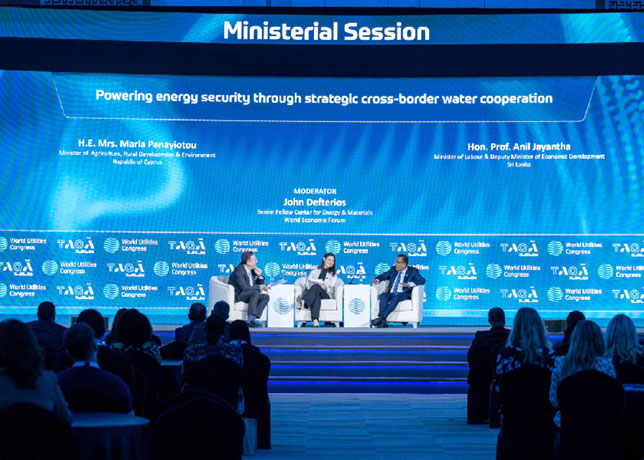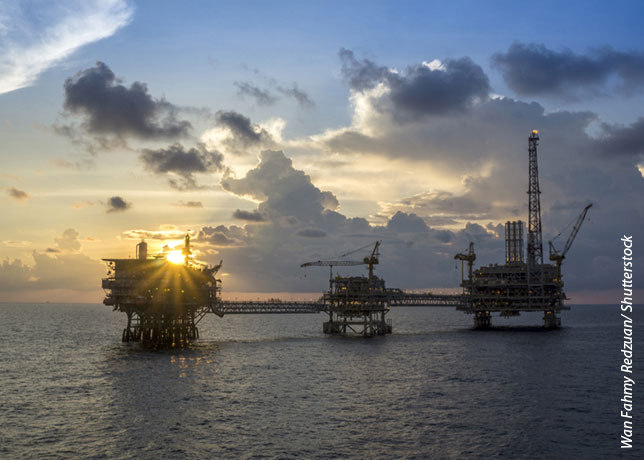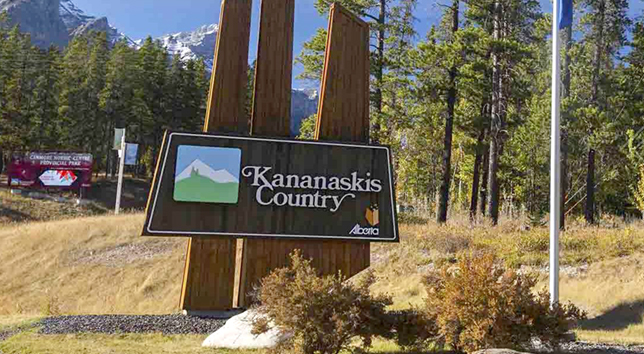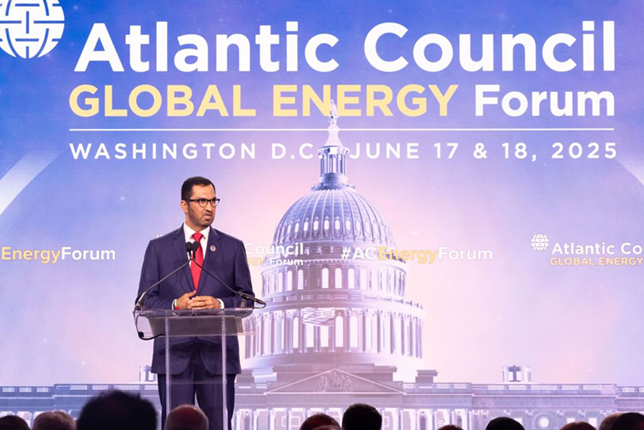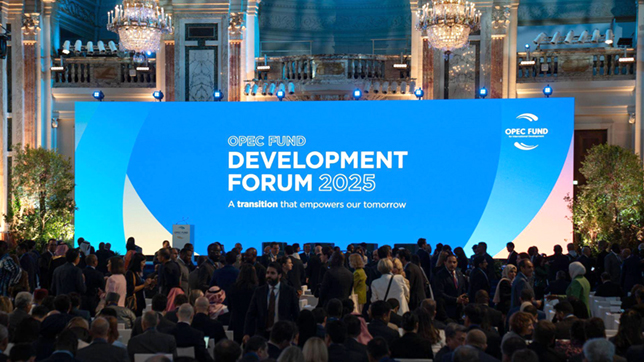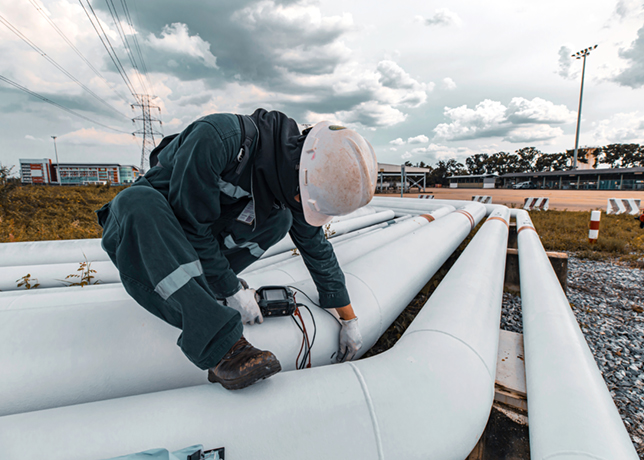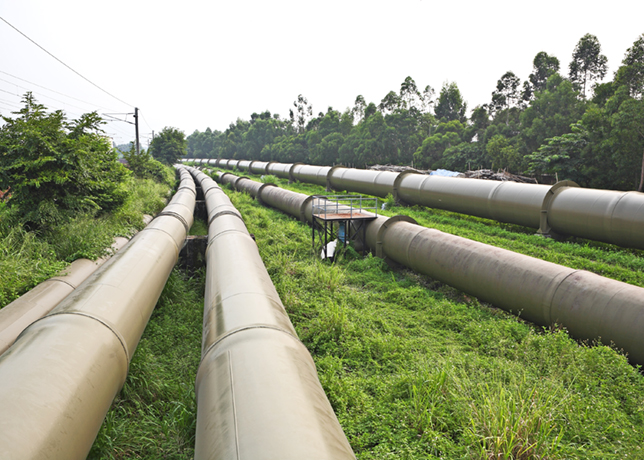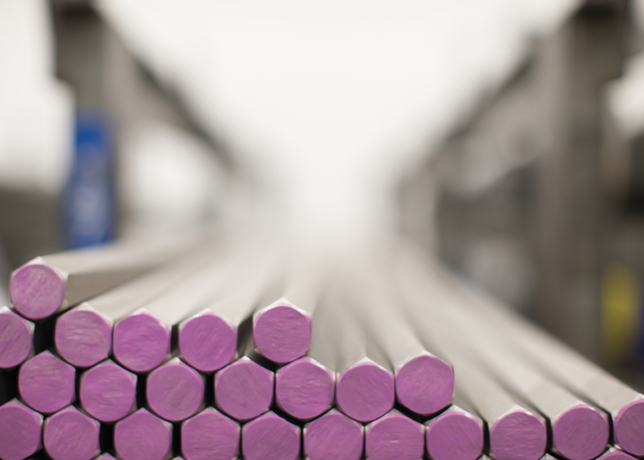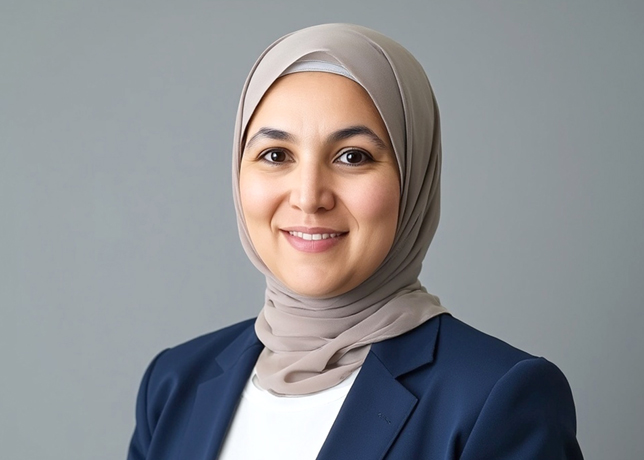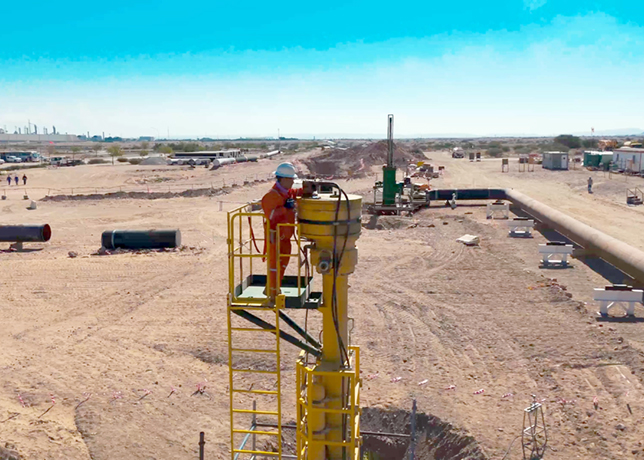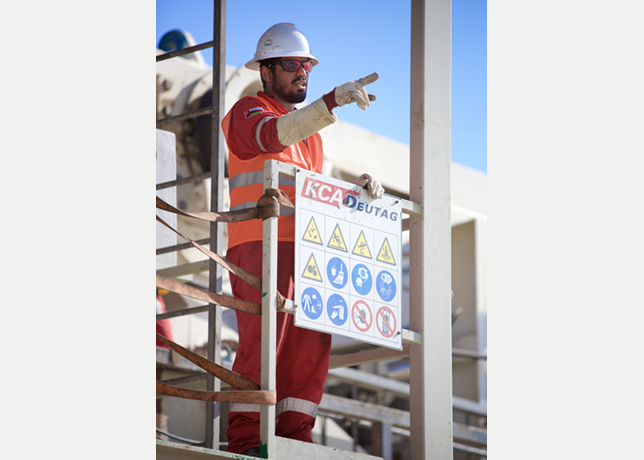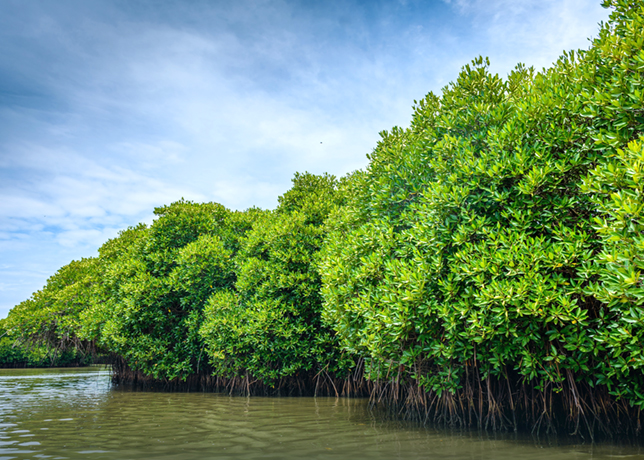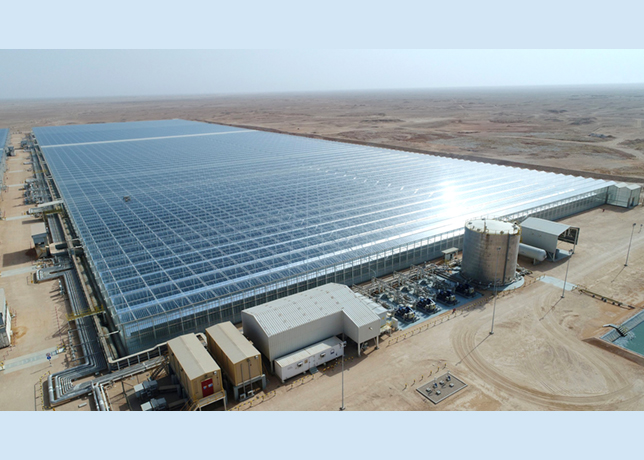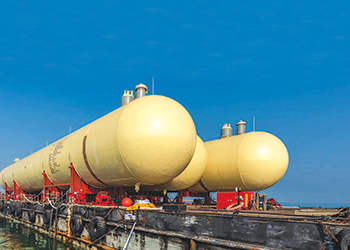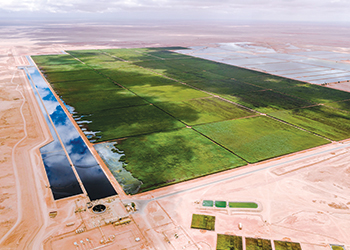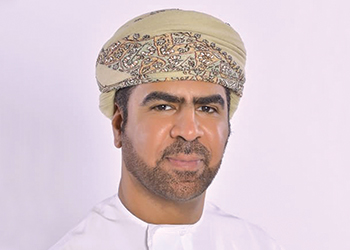
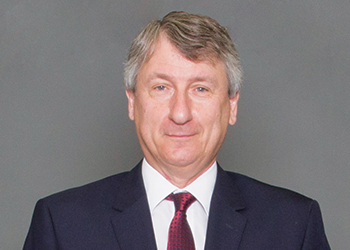 Restucci ... planning for PDO to be a full-fledged energy company
Restucci ... planning for PDO to be a full-fledged energy company
The Sultanate's biggest oil and gas producer is leveraging renewables, improving energy efficiency, water management and reducing routine gas flaring well before its commitment to the World Bank target of 2030
It makes complete sense for oil and gas companies in an environment-cautious world not to lose focus of a future that demands them to become less carbon intensive and more caring for the communities they operate in.
Leading that path for other operators in the region is Petroleum Development Oman (PDO), the largest producer of oil and gas in the Sultanate of Oman. The company has set out an ambitious plan to transition to a fully-fledged energy company with a lower carbon future.
In an exclusive interview, Raoul Restucci, the Managing Director of Petroleum Development Oman (PDO) spoke to Abdulaziz Khattak of OGN to give an overview of the company’s progress and future plans, its In-Country Value (ICV) strategy, job creation for and training of Omanis, environmental concerns and other developments.
What were the highlights of PDO’s performance in the past year?
We met or exceeded targets across our entire business spectrum, but one of the major highlights was the safe and successful start-up of the company’s largest oil and gas project at Rabab Harweel in Southern Oman. This represented a very material reserve addition of more than 500 million barrels of oil equivalent. This world-class, highly technical and complex project was delivered ahead of schedule and over $1 billion under budget.
In 2019, we also achieved our highest oil production since 2005, averaging 616,380 barrels per day, and we confirmed plans and capacity to ramp this up to about 700,000 bpd by 2024, as required.
Another pleasing development has been our progress in commercially delivering services to third parties as we gravitate to leveraging our extensive value chain capabilities and broadening our portfolio by becoming a fully fledged energy company. We matured and executed an exploration and appraisal drilling programme for Phase 1 development drilling project in the Greater Barik area for partners, as well as seismic and other services outside our Concession.
With ongoing concerns around climate change, we continued our gradual transition away with greater leveraging of renewables. This has been accompanied by real momentum around more efficient energy and water management and an intensification of our drive to reduce routine gas flaring well before our commitment to the World Bank target of 2030.
I’m also pleased to say that despite the unprecedented challenges posed by the Covid-19 pandemic and ongoing oil price volatility, our staff have adapted well by leveraging the latest digital technologies to work remotely but efficiently and continue to deliver value for Oman.
What contributions did PDO make to the national economy of Oman during the year?
 |
The Amin IPP project can power 15,000 homes and annually reduce more than |
We delivered a record 21,012 job opportunities with our contracting community in both the oil and non-oil sectors in 2019 alone, and have now created more than 83,000 since 2011 when the National Objectives programme was launched.
At the same time, we have maintained our drive to keep more of the wealth of the oil and gas industry in Oman, managing to increase the value retained in country to 46 per cent.
Other good news comes from the Ejaad initiative, which we launched with the Ministry of Oil and Gas and The Research Council, to nurture greater collaboration and alignment between industry and academia. To date, we have awarded eight joint projects to different universities to tackle some of our industry challenges.
Ejaad will play an invaluable role as it coordinates, for example, efforts to create a national strategy for hydrogen as a promising economic engine and builds a shared vision for the industry – integrating local and international ambitions.
What new partnerships/MoUs has PDO formed with key stakeholders to collaborate in various areas?
One particularly exciting joint venture is the 'SparkLabs Energy Accelerator' programme which offers funding, co-working space and mentorship to help companies develop products and services for the energy sector.
Here, we have teamed up with Phaze Ventures, Oman’s first private venture capital fund, and SparkLabs Global, one of the world’s biggest networks of business incubator programmes to nurture innovative Omani SMEs.
The programme also provides access to a global network of entrepreneurs, venture capitalists, angel investors and executives, as well as the opportunity to test the viability of early solutions within the real-world setting of PDO’s operations.
PDO looks strong on renewables. What new projects has it initiated in this domain? What stages are those projects in?
Perhaps the most notable in recent weeks has been the delivery of our landmark 100-megawatt (MW) Amin Independent Power Producer (IPP) project located in Southern Oman, which has now begun commercial operations, having been successfully commissioned three months ahead of schedule.
The solar installation, which will provide power for our interior operations, was built and came on stream in record time, just under 12 months after we signed the engineering, procurement and construction (EPC) contract.
This achievement represents an excellent example of Oman's outstanding potential in renewable energy and is another building block in support of our continued transition to a fully fledged energy company and a lower carbon future.
Meanwhile, we will continue to operate our flagship Miraah project at Amal in south Oman, which harnesses solar power to generate steam for thermal enhanced oil recovery. We continue to add more photovoltaic (PV) panels to our head office in Minal Al Fahal in Muscat and solar installations to our Ras Al Hamra project and have identified a number of incremental solar and wind opportunities that will be announced in the coming year.
What are the targets set for these renewable projects? How much of it will be achieved in 2020?
The energy generated by the Amin IPP project is sufficient to power 15,000 homes and could lead to an annual reduction of more than 225,000 tonnes of carbon dioxide (CO2) emissions – the equivalent of taking 23,000 cars off the road.
The Miraah plant will have the capacity to produce 300 megawatts (MW) from 12 blocks from July this year.
Overall, we aspire to produce 30 per cent of our power generation from renewable resources by 2025.
On the drilling and exploration sides, what are some of PDO’s developments?
Our Exploration Directorate has had much success with new oil and gas bookings form across our Block 6 concession area. In 2019, a total of 136 million barrels of contingent oil resources were booked, largely in Raba East and Hazar South, along with 1.1 trillion cubic feet (Tcf) of non-associated gas, mainly in the Saih Rawl North West area. We also achieved the lowest unit finding cost for oil in a decade at just $1 per barrel.
The directorate safely drilled 26 wells in Block 6, and production from exploration wells was delivered as planned at a daily average rate of approximately 1,250 barrels, with further production expected from new exploration wells coming on stream this year.
How is PDO executing the national oil and gas strategies for promoting value-added industrialisation in the Sultanate?
We recently signed a major Memorandum of Collaboration with the Public Establishment for Industrial Estates (Madayn) to build an industrial city in the Industrial and Logistics Complex in Marmul in south Oman.
We are looking forward to collaborating with Madayn on this strategic project to accelerate the development of local manufacturing capacity and capability while broadening supply chains that can also proficiently support our activities in South Oman.
Bringing these vital operations closer to our fields will reduce turnaround time and costs, provide efficiency gains and help to improve safety.
We have also worked hard with our partners to establish Omani factories, workshops, repair facilities and contracts offering in-country engineering services, equipment and materials to the oil and gas sector. In 2019, we delivered 11 manufacturing and service facilities, creating 200 jobs for locals. As we work to support the Ministry of Health in combatting the Covid-19 pandemic, we have supported the establishment of local manufacture of masks and hand sanitiser.
What are PDO’s achievements on the safety front? Have you set any targets for 2020?
Safety remains an overarching priority, and we have implemented a comprehensive package of company-wide measures to protect and care for our people and their loved ones during the Covid-19 outbreak. We have also supported and shared best practice with our contractor community and are presently accommodating several of their staff for quarantining and medical support purposes in various PDO facilities across our Concession and in Mina Al Fahal.
We established a high-level Coronavirus Response Committee and have adopted new work patterns and methods, such as remote working and extended shift cycles, to limit staff exposure to the virus and control its transmission as much as possible.
Our medical resources were re-prioritised to focus on the disease and those patients potentially impacted and the more serious and urgent medical cases.
The critical importance of social distancing, good personal hygiene, and self-isolation if initial symptoms are detected, and the mandatory wearing of face masks in the work environment has been continually reiterated through our internal and external corporate communications channels, including a dedicated Coronavirus site, and social media platforms.
We have supported the Ministry of Health with the purchase of testing and ultra-sound machines, chemical re-agents, and personal protective equipment, and have produced and distributed to company, contractor, government entities and embassies more than 120,000 litres of sanitiser and much more. We are presently accommodating and supporting more than 100 doctors and nurses in our facilities in Mina Al Fahal to ensure they don’t expose their loved ones when combatting the pandemic.
Aside from our huge coronavirus response, we continue to make significant strides on the safety front, concluding 2019 with a record performance.
Our lost time injury frequency per million man-hours worked dropped significantly from 0.15 to 0.10, a 33 per cent fall, while the total recordable case frequency per million man-hours worked also fell from 0.71 to 0.57.
The expansion of our in-house Ihtimam (behavioural safety) and Frontline Safety Leadership (FLS) programmes has been universally welcomed and led to an improvement in communication, leadership and the overall safety culture. At the end of 2019, Ihtimam covered 34 contractors and 17,500 personnel while 2,000 were FLS accredited.
PDO is also committed to improving road safety both within our own boundaries and beyond and is regarded as a role model within the industry and across the country, and we invest heavily on initiatives to secure the safety of all road users in and out of our concession area.
Our dedicated Journey Management Control Centre, established in 2016, is helping to manage road exposure to an even greater degree, along with greater compliance, consequence management and coaching across both our staff and contractor vehicle fleet.
It has led to a 97 per cent drop in the average monthly number of violations per vehicle (such as speeding or not wearing seat belts) to less than one, and is now monitoring more than 8,500 vehicles across 247 contracts.
The centre’s functionalities have been expanded to include e-journey management for PDO staff with a view to include contractors soon. We are also piloting in-cab cameras to improve fatigue management and a new 'guardian' system of checking driver behaviour in high-risk vehicles, as well as mandating contractors to introduce online monitoring and daily violation reporting.
For 2020, we will continue our relentless pursuit of Goal Zero – no harm to our people, environment or assets – and intensify our review of Tier-1 process safety incidents to learn lessons and avoid repeats.
What are PDO’s plans to increase the digitalisation of its processes?
With the advent of the Fourth Industrial Revolution, we are increasingly deploying digital systems, automation, artificial intelligence and data analytics alongside lean efficiency tools to eliminate waste, boost productivity and ensure safer, more efficient production.
One significant example is the way we have digitally transformed the management of our wells, reservoirs and facilities through our in-house developed Nibras platform.
This web-based solution is used to integrate all the relevant processes, proactively identify issues by exception and automate workflows; and its deployment, allied to Lean, has resulted in the streamlining of processes and greater performance.
Drone and smart mobility technologies are also gaining greater adoption, reducing HSE exposure in the field and facilitating faster support and intervention between our Muscat headquarters and the field.
Robotic process automation is increasingly deployed across more and more functions, as indeed advanced analytics to help us in our asset verification through to compressor or sub-surface pump optimisation.
We have launched a remote working programme called Maktabi for our staff and this placed us in a good position to ensure business continuity during the Covid-19 outbreak when our main offices were largely vacated as part of our preventative measures.
We also upgraded our IT infrastructure and increased our bandwidth in a matter of days to bear the additional load of thousands of personnel working from home, and leveraged platforms, such as Skype for Business, for audio and video conferencing and instant messaging.
Over the last few weeks, we have been averaging more than 27,500 virtual engagement sessions per week with team representation varying from 2 to 250 staff at any one time.
Participation in our bi-weekly management townhall live broadcast sessions (Al Hewar) has ranged between 2,400 and 4,300 staff with recording accessed by a further 1,500-2,500 staff. This helps us ensure all are appraised of progress, to address staff enquiries and to ensure we all work as proficiently as possible to deliver on our plans and to best serve the nation and all our shareholders.










